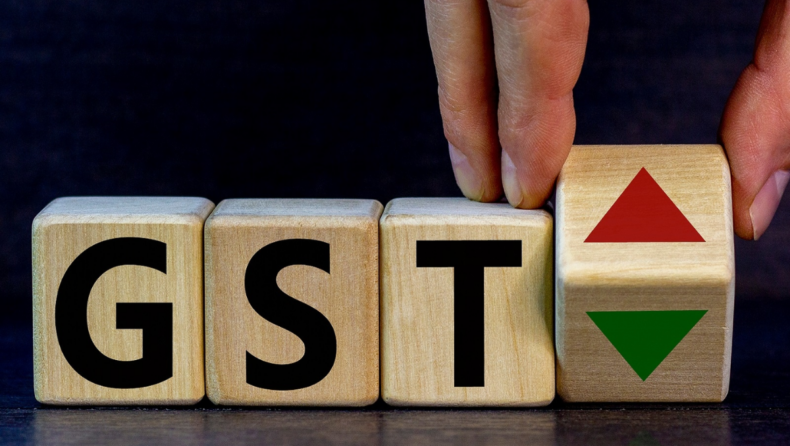With the new GST hike, consumers may have to pay more starting July 18 because the Goods and Services Tax (GST) Council approved a rate hike to fix inverted duty structures and took away some exemptions. This means that the prices of some goods and services will go up.

Nirmala Sitharaman, the minister of finance, said that if GST rates go up, it will be to make up for “inefficiencies” in the value chain.
The minister had said that no state was against changing the rates. “The Fitment Committee’s suggestions before the GST Council were considered in full, and more or less, all of them have been accepted,” she said.
Here is a list of things that will cost more:
- Single packages of food like cereals, pulses, and flour that weigh up to 25 kg will be considered “pre-packaged and labelled” and charged 5% GST. Curd, lassi, and puffed rice would also be subject to GST at the rate of 5% if they were already packaged and labelled.
- Other things that will cost more are ink for printing, writing, or drawing, knives with cutting blades, paper knives, pencil sharpeners and blades, spoons, forks, ladles, skimmers, and cake-servers. Instead of getting 12 percent, these items would now get 18 percent.
- There will be an 18% tax on LED lights and solar water heaters.
- Tetra Pak (or aseptic packaging paper), which is used to package liquid drinks or dairy products, will now be charged 18% GST instead of the previous rate of 12% GST.
- The tax on cut and polished diamonds will go from 0.25 percent to 1.5 percent.
- Prices for hotel rooms up to Rs 1,000 per night will now be taxed at a rate of 12%.
- The GST will be charged on hospital rooms with rents over Rs 5,000 per day that are not ICUs.
- The Goods and Services Tax (GST) will apply to bank cheque books and loose-leaf cheques at a rate of 18 percent and to maps, atlases, and globes at a rate of 12 percent.
- The tax exemption for training or coaching in arts, culture, or sports-related recreational activities is restricted to services provided by individuals.
- Transportation by rail or vessel of railway equipment and material, storage or warehousing of commodities which attract tax (nuts, spices, copra, jaggery, cotton, etc.), fumigation in a warehouse of agricultural produce, services by the RBI, the IRDA, the SEBI, and the FSSAI, GSTN, renting of residential dwelling to business entities (registered persons), and services provided by cord blood banks by way of preservatives are losing their exemptions.
What gets cheaper:
- Taxes on the transport of NSE -0.01% goods and passengers via ropeways would drop from 18 percent to 5 percent.
- As a result of the tax reduction from 18 percent to 12 percent, renting a truck/goods carriage with fuel included will be less expensive.
- The GST rate on ostomy and orthopaedic appliances – splints and other fracture appliances, artificial parts of the body, other appliances which are worn or carried, or implanted in the body, to compensate for a defect or disability, and intraocular lenses – has been reduced from 12 percent to 5 percent.












